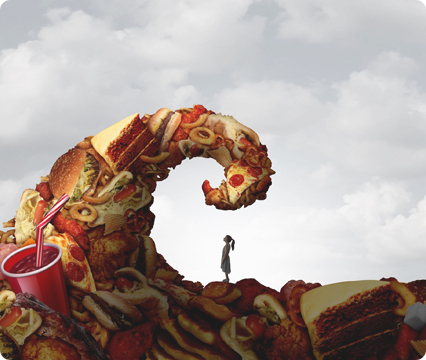Depression and food consumption in Mexican college students
The aim of this 2018 study was to uncover the prevalence of depression and unhealthy food consumption among first-year college students, and to evaluate whether there is a link between their depression score and unhealthy food intake frequency. The 1,104 college freshmen (40.3% men; 59.7% women) studying at a public university in Mexico City, were examined on their food consumption (food frequency questionnaire) and depressive symptoms [the 20-item depression scale (CES-D)]. Depressive signs were identified in 18.2% of the men and 27.5% of the women, while the reporting of poor dietary habits were fairly common. Only 39.7% of the student sample practiced vigorous physical activity, and 30.3%, 49%, and 51.8% of participants reported eating fried foods, sweetened drinks, and sugary foods 2-7 times per week, respectively. Logistic regression analysis revealed that women were at more risk of developing depressive symptoms if they did not exercise regularly (< 75 min/week; OR = 1.80, p = 0.017), and frequently consumed fast food (OR= 2.08, p = 0.018), fried food (OR = 1.92, p = 0.01) and sugary food (OR = 2.16, p = 0.001). Lazarevich et al. (2018) could not find an association between food consumption and depression scores among male students, but there was a correlation between depression and low exercise frequency (OR = 2.22, p = 0.006). The researchers suggest that those women vulnerable to depression may use food as a coping mechanism to deal with negative mood. Institutional health promotion and nutritional education programs are encouraged to consider emotion and stress management. [NPID: depression, anxiety, Mexico City, fried food, sweetened drinks, sugar, coping mechanism, negative mood, stress, stress management, emotion]
Year: 2018
 Navigation
Navigation






